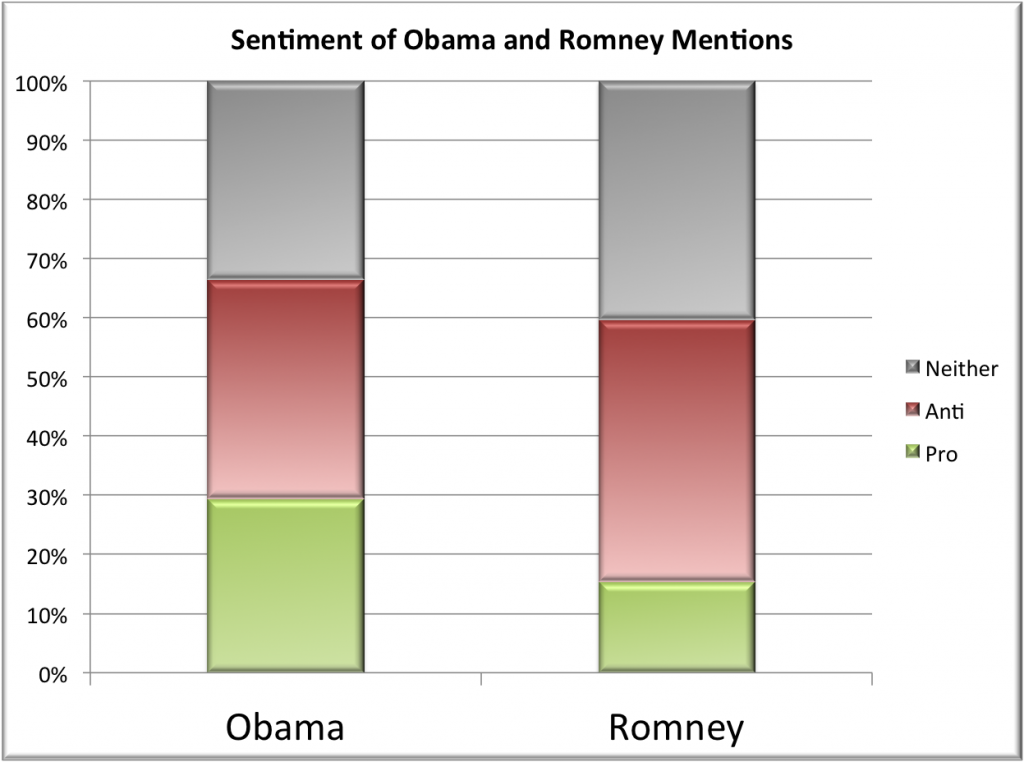With all of the excitement over Todd Akin, it’s easy to forget that last week was all about Romney picking Paul Ryan as his running mate. But it was a busy week nonetheless, and it’s interesting to look at how it was played out on Twitter.
The first thing that stands out is that the number of tweets mentioning each candidate was roughly the same. Both received about 1.9 million mentions on Twitter. Romney may have fewer followers, but he’s just as hot of a topic.
For both of the candidates, about 45% of the tweets were retweets, while the rest were not (or were modified in the process). There’s a lot of people expressing their opinions out there. And what were those opinions?
Here’s a rough breakdown of the sentiment of the tweets:
The number of tweets that were in support of the candidates was pretty small — about 29% for Obama and 15% for Romney. The largest category of tweets were those in opposition to a candidate, about 37% for Obama and 44% for Romney. And a sizable number either didn’t indicate a preference or were just off topic or spam. (Please see end notes for a description of the methodology used here).
This may explain why the number of mentions each candidate is getting is more or less the same: if half of the Romney supporters are complaining about Obama and vice versa, you’re going to see the same number of tweets about both candidates.
What did people talk about? It’s all over the board. For Romney’s mentions, here are some popular topics:
| Ryan | 18.12% |
| Obama | 8.46% |
| Healthcare | 4.58% |
| Medicare | 3.56% |
| Taxes | 1.81% |
For Obama’s mentions, here are some popular topics:
| Romney | 9.92% |
| Ryan | 9.14% |
| Healthcare | 8.25% |
| Taxes | 6.83% |
| Medicare | 4.20% |
Mind you, most comments about a candidate are negative, so you can almost view these lists as being reversed: Romney supporters often talked about the topics in the Obama table while trashing him, while Obama supporters frequently talked about the things in the Romney mentions table.
I find it interesting that (a) the volume of tweets mentioning each candidate seems to have evened out and (b) the discussion on Twitter is now predominantly negative, matching the general tone of the conversation. If you read through many of the tweets, as I did, you can see two very polarized groups with very different world views shouting at each other. It’s not the most pleasant thing to read!
Notes on methodology:
I use a survey method that looks at a random sample of all tweets. The sample size is large enough to give a 95% confidence that the estimates are +/- 5%. The survey consists of a manual review of each of the tweets in the sample set and assigning it a pro, anti, or neither score, which form the basis of the statistics you see in this post.

